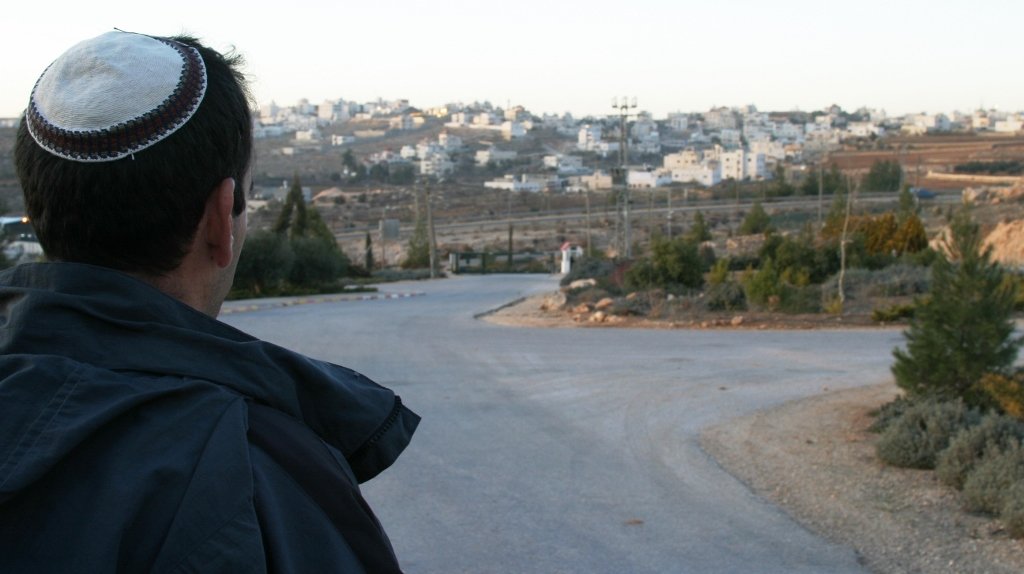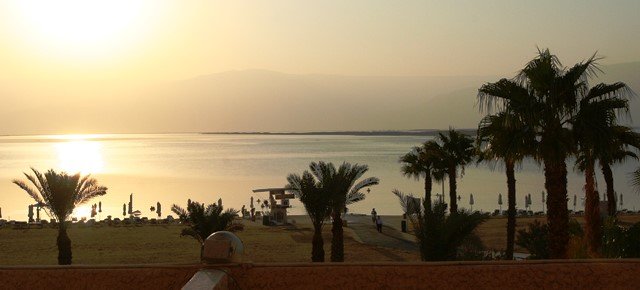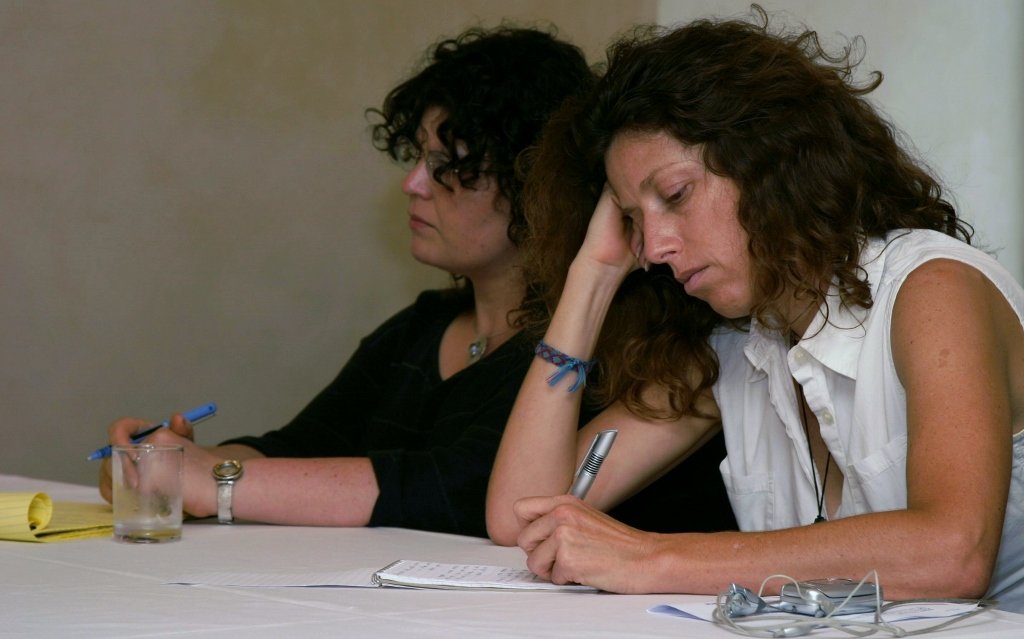Share This Story, Choose Your Platform!
Anti-Semitism is out. Until the middle of the 20th Century there were not a few Europeans who labeled themselves proudly and in full public view as “anti-Semites”. A contemporary citizen today who is at least partially in his right mind would hardly dare to do that. The latest trend is “Philo-Semitism”. Whoever learns Hebrew is admired. Increasingly fewer people would now-a-days claim with any degree of seriousness that one can understand the Holy Scriptures without reference to their Jewish background. The Star of David and the Menorah have become undeniable components of the image of Christian congregations in many parts of the western world.
Post-Auschwitz Germany’s responsibility towards the Jewish people has become indisputable. In the meantime more and more Christians worldwide have realized that the Holocaust, albeit unique in its objectives and the execution of the same, nevertheless was only rendered possible against the backcloth of a profoundly anti-Jewish Christian theology combined with the indifferent silence of public opinion. Two thousand years of church history have torn a deep rift between the Jewish people and the Christian church.
Reconciliation has become the watchword of the present day. Historical enlightenment is promoted for that purpose by the state. To be conspicuously absent from a memorial service for the victims of National Socialism is a faux-pas which a representative of Europe’s political, economic or social scene could hardly afford to make. “Israel Sunday” has become a permanent date in the German church calendar. Thousands of people have invested substantial time, energy and money in order to ask Jews and Moslems, as part of various reconciliation events, for forgiveness for Christian atrocities. By and large, Anti-Semitism is out – and that is good!
However, it is just as much “out” to call oneself a Zionist. Anyone now-a-days who airs his enthusiasm for the State of Israel usually feels obliged to add in the same breath the reassuring clause: “that doesn’t mean that I have anything against the Palestinians!” But the fact is that Zionism doesn’t render hostility against the Arabs in any way inevitable. I haven’t up till now been able to observe an reverse avowal in favor of the State of Israel’s right to exist coming from the direction of “Palestine fans.” Neither does public opinion demand such an avowal.
Only a relatively few rightwing “Israel fans” openly profess a basic right of the Jewish people to settle in the heartland of Israel, even though this doesn’t place even the smallest query on the right of Arabs to live in this region. The overwhelming majority of the church openly propagates as a solution to the Middle East conflict an ethnic cleansing of over 200,000 Jews from historical Judea and Samaria. Woe to anyone who dares even to contemplate a similar solution for the problem of Israeli Arabs who openly express their hatred of the Jews, are adamantly opposed to the existence of a Jewish state or are even actively engaged in the Palestinian struggle for freedom.
For the sake of peace the Jewish people are supposed to content themselves with the Galilee of the heathens and the coastal plains – referred to in the Bible as the land of the Philistines and Syrophoenicia. The majority of the world’s Christians favor an internationalization of Jerusalem as “the city of the three monotheistic world religions.” Whoever speaks out openly in favor of Jerusalem as the eternal and undividable capital of the State of Israel is dismissed as a Christian Zionist – a label with which no official Church representative would wish to be abused.
From within the European evangelical camp, one hears that the State of Israel is a mere political phenomenon devoid of any theological significance, and nothing more than the product of combined European and American political power mongering. Pentecostal and charismatic leaders tend to fall back on the missionary mandate – that is, if they dare at all to show their faces on Israel conferences. Prominent American Jewish Christians and a number of high profile American gentile believers consider themselves above the reproach of Anti-Semitism and say what they think – that is, that the present return of the Jews to the land of Israel will end in a massacre which will make the Holocaust appear like a game of cards.
That the Islamic world has a problem with the existence of Israel, and in particular with the supremacy of Jews over Moslems cannot be overlooked. From the Islamic point of view it is untenable for Moslems living on Moslem soil to be forced to submit to non-Islamic law. The thorn in the flesh of Islam is not the fact of Jews living in the land of Israel – for centuries Jews have existed more or less peacefully as “dhimmi” – that means as “wards” or second-class citizens – in Islamic countries. No, the problem is that of Jews ruling over Moslems. That’s why it is entirely feasible for moderate Moslems to acknowledge the State of Israel. It is only the Jewish character of this State that poses a problem – and in that the adherents of the prophet Mohammed are not alone.
In Europe and North America no-one dares any longer to doubt Israel’s basic right to exist. But to postulate the right of an explicitly Jewish State in an otherwise Islamic-dominated Middle East is a totally different matter. In Oslo, the venue of the political process of that name, one could already years ago hear whispers behind the scenes which called for Israel to cease to be a Jewish State in order to become “state for all its citizens”. Only in this way would peace be achieved, claimed the co-initiators of this process, which has yet to prove that it had anything to do with peace in the first place. When it hears the phrase “a state for all its citizens,” the Islamic movement in Israel anticipates with undisguised candor a foreseeable “islamification” of Israel made possible by the higher birth rate on the side of the Moslems.
In Israel itself the phrase “post-Zionism” is doing the rounds. That Israel is seen to be suppressing another people in its midst in order to realize the dream of its own independence in the land of its fathers is embarrassing to many Israelis. Added to that is the secular Jews’ fear of a rabbinical state. Hints of a parallel with the Iran of the Ayatollahs constantly emerge. When faced with the choice between the orthodox and the secular, messianic Jews usually land in the camp of the supporters of a “democratic State for all its citizens,” because they are considered by orthodox Jews to be a threat to Jewish identity and are also treated accordingly.
Christians in Germany openly disparage the Jewish State of Israel as an apartheid state. The fact that “apartheid” in Islamic states and societies, to which the Palestinian Autonomy also belongs, is not objected to with the same outrage, occurs to them as little as the fact that Israel is the only state in the Near and Middle East in which a change of religion is possible without State repression. In Islamic states the renunciation of Islam is not seldom punished by death. And do Moslems in Europe really have de facto the same rights and opportunities as their Christian fellow citizens?
For more than half a century Israel has been struggling to form and preserve its democratic and at the same time Jewish character. No-one, not least in Israel itself, has any doubts as to the difficulty of this task. Contributions to the discussion coming from outside are, as I have experienced it, warmly welcomed. But much of the criticism which is directed to the Jewish State recalls Jesus’ example of the splinter in the brother’s eye and the beam in one’s own eye – quite apart from the fact that non-Jews as a rule have little understanding of the Israelis’ desire for a specifically Jewish state.
The alarming prospect of a State of Israel in which Jews (as everywhere else in the world) are yet again a minority group influences every area of daily life in the Jewish state. That’s why orthodox Jews are fighting against the installation of civil marriage, to quote just one example. That’s why Christians sometimes have problems getting their visa in Israel. That’s why the Sharon government is demanding the Palestinians’ renunciation of their claim to return to the State of Israel, and their acknowledgement of Israel’s right to exist as a Jewish State, as a precondition to its acceptance of the new so-called “road map to peace.”
The Holy Scriptures bear witness to a “Trinity” embracing God, his people and his land. True peace on this earth is only conceivable when the people of Israel live in harmony with the God of Israel in the land of Israel. The God of Abraham, Isaac and Jacob has bound himself inseparably to the Jewish people and to the land between the Jordan and the Mediterranean (see Genesis 12:1-3). “Just as the people need the land in order to achieve life in its fullness,” claims the Jewish philosopher of religion Martin Buber, “the land in the same way needs the people in order to achieve its life in its fullness.”
As soon as one of the sections of the triangle people/God/land is dysfunctional the other two parts are also thrown out of balance. When the relationship between God and his people is disrupted, the people are removed from the land. The blessing of God is withdrawn from the land and it becomes desolate (see for example Deuteronomy 11:16-17 or Isaiah 6:8-13). As soon as God, however, turns back to them again, his people return to their land and the land begins to flourish again (see for example Jeremiah 31-33).
The broken relationship between the Jewish people and their God, as Jesus repeatedly indicates (for example in Matthew 23:37-38), leads inevitably to the destruction of the temple, the desolation of the land and the annihilation of the people from the land – even if the scattering of Israel into the whole world is not explicitly mentioned in the New Testament. The repossession of Israel as predicted in the New Testament (e.g. in Romans 11:15) therefore goes hand in hand with the return of the people to their land and the restored prosperity of the land.
The fact that “Palestine” was for centuries an inhospitable land of deserts and swamps is no coincidence, but the natural consequence of the uprooting of the people of Israel from the land of Israel. If the land of Israel is flourishing again today, it is an indication that the reverse is taking place, i.e. that something parallel is happening in the relationship between God and his people.
The Jewish people without their land – or without at least the prospect of returning to it – is as unthinkable as the Jewish people without their God. At least three times a day, after every meal, orthodox Jews all over the world have prayed for thousands of years the prayer “build Yerushalayim, the Holy City, quickly in our time!” The prophet Daniel put his life at risk when he prayed three times a day in front of an open window in the direction of Jerusalem. The whole daily routine of believing Jews, all their ceremonies, their annual cycle of events, and the biblical feasts of the Jews – all are tinged with a longing for Jerusalem. Whenever Jews in the course of the centuries forgot Zion, they ceased after only a few generations to be Jews.
The problem we Christians today frequently have with the promise of the land is basically a matter of hermeneutics. People who ask “Where is all of this in the New Testament?” overlook the way in which the New Testament itself argues and thinks. Even central questions like the question of whether Jesus is really the Messiah must be approached in accordance with New Testament thinking and in the light of the Old Testament (for example Acts 18:28). For this reason Martin Luther too was able to establish that the New Testament is nothing more than “a public sermon and declaration of the edicts established in the Old Testament and fulfilled in Christ.”
That is why the question the disciples asked just a few minutes before Jesus’ ascension and after they had acknowledged the solution of the relationship problem between the Jewish people and their God – “Lord, will you at this time restore the Kingdom to Israel” (Acts 1:6) – is entirely logical. And Jesus does not correct their thought sequence. He only reveals to them what their task will be until he comes again, for “this Gospel of the Kingdom will be preached in the whole world as a testimony for the nations, and then the end will come.” (Matthew 24:14).
Jesus had taught his disciples, “Truly I say unto you, until Heaven and earth pass away, not the tiniest dot or iota of the torah will pass away, until this all comes to pass.” (Matthew 5:18). Establishing a link to this statement of Jesus, the Apostle Paul too explained to his contemporaries that Jesus had ascended to Heaven “until the time comes when all things will be restored of which God has spoken from the beginning through the mouths of his holy prophets.” (Acts 3:21)
The promise of the land belongs right from the first letter of the Holy Scriptures to the “charismata” which God has entrusted to his people and of which “he cannot repent” (Romans 11:29). The promise of the land and the hope of the Jewish people for their return to Zion which is linked with this promise belong to the central themes of the Holy Scriptures. Even if much remains open when it comes to the concrete realization of this dream, the existence of the Jewish people cannot be comprehended without this hope.
If the New Testament had really cancelled the land promise, this would perforce have been explicitly stated. As long as this is not the case, the onus of responsibility lies with those who would want to separate Zionism from Judaism. And as long as these proofs have not been delivered, the suspicion suggests itself that “Anti-Zionism” is nothing other than a modern version of the ancient phenomenon which since the 19th century has been called “Anti-Semitism.”
Translation: Nicola Vollkommer, editing: Stan Goodenough






















